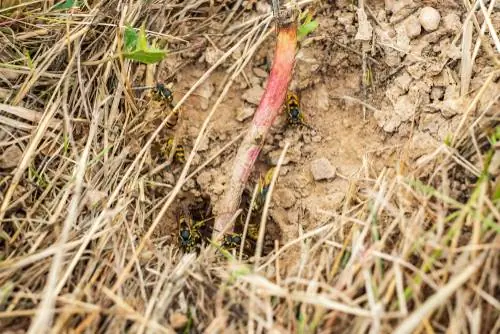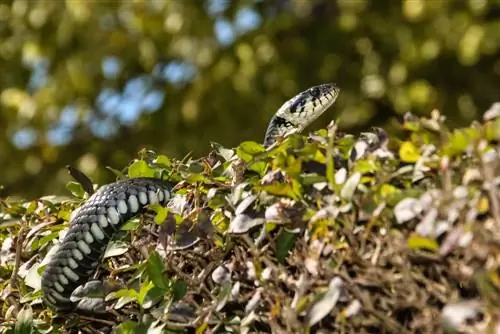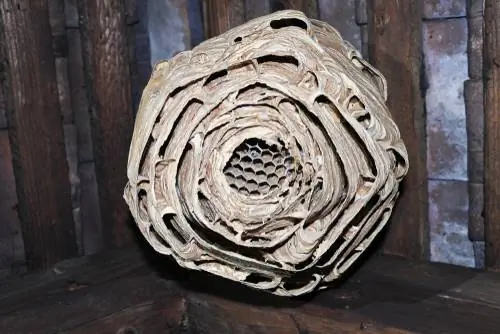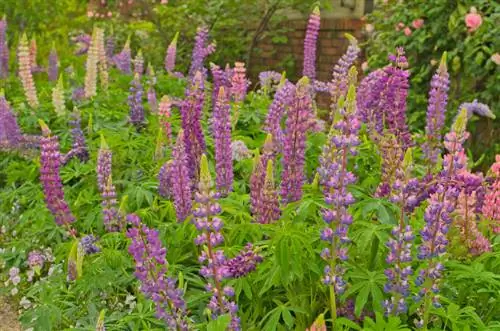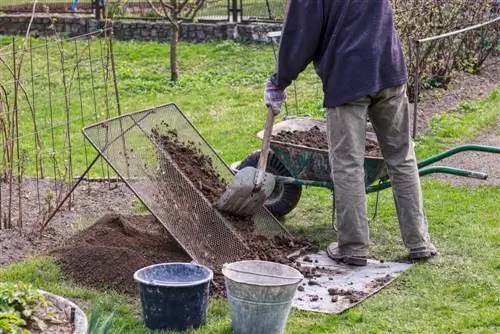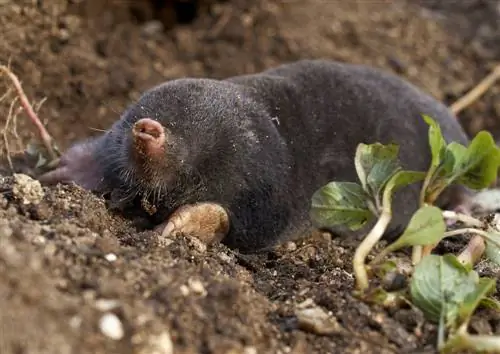- Author admin leonars@hobbygardeners.com.
- Public 2023-12-16 16:46.
- Last modified 2025-01-23 11:22.
Wasps can be a problem, especially in and around the house. But also in the garden. Especially when they nest close to the ground and dangerous moments of surprise can arise. Here are a few tips on how to deal with a wasp nest in the ground.
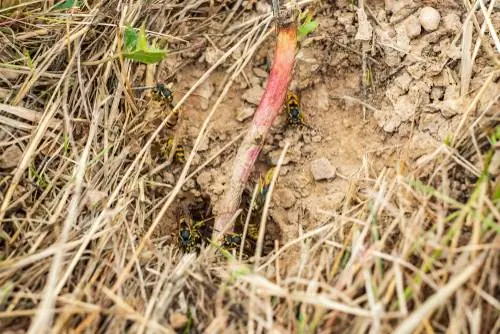
How to deal with wasps in the soil?
Wasps in the ground are usually German or common wasps that nest in abandoned burrows of mice or moles. To treat an earth wasp nest safely and in an animal-friendly manner, the area should be cordoned off and the wasps should be tolerated until autumn before they disappear again.
Types of wasps that nest in the ground
Wasps have different preferences for their breeding sites depending on the species. Those that nest seasonally in the ground are mainly:
- German wasps
- Common wasps
These short-headed wasp species vary every year with their choice of location - for example, attics, hollow tree trunks or piles of stones are also very popular with them. When a young queen chooses a nesting site in the garden soil in spring, it is usually an abandoned burrow of mice or moles.
Unfortunately, the German and common wasps are also the ones that can be the most dangerous to us humans. Compared to most other wasp species, they are not afraid of us and do not hesitate to use their stinger as soon as they feel threatened. They also form the largest colonies of all social wasp species and are therefore dangerous simply because of their sheer numbers.
Normally, a wasp nest in the garden soil can be easily discovered by the animals swarming in and out. If you're unlucky, it also happens that you only notice it when you step on it - and of course that can have bad consequences in the form of many painful stitches at once.
How to deal with the colony?
Removing an earth wasp nest is not that easy and should be left to professionals. The simplest and most environmentally and animal-friendly solution, as well as the least expensive one for you, is to tolerate. Cordon off the area around the nest to prevent anyone from entering it. In the fall the wasp colony disappeared again anyway.

